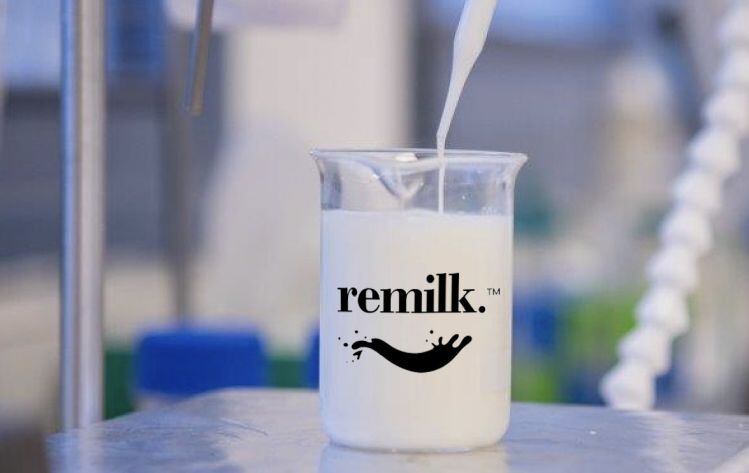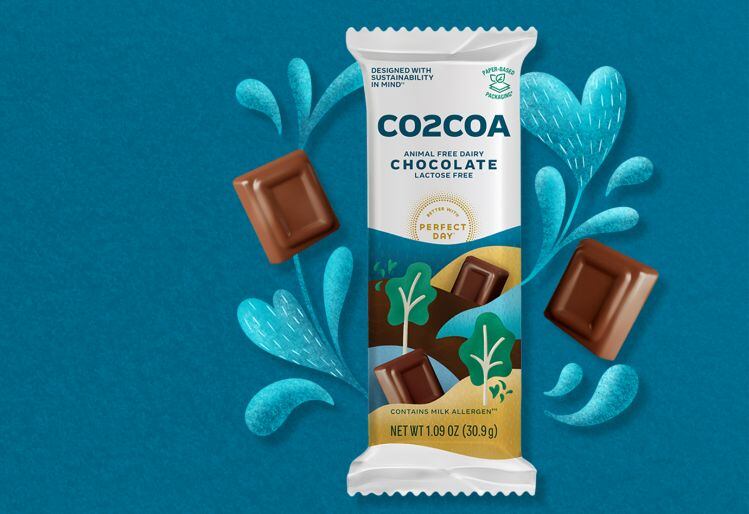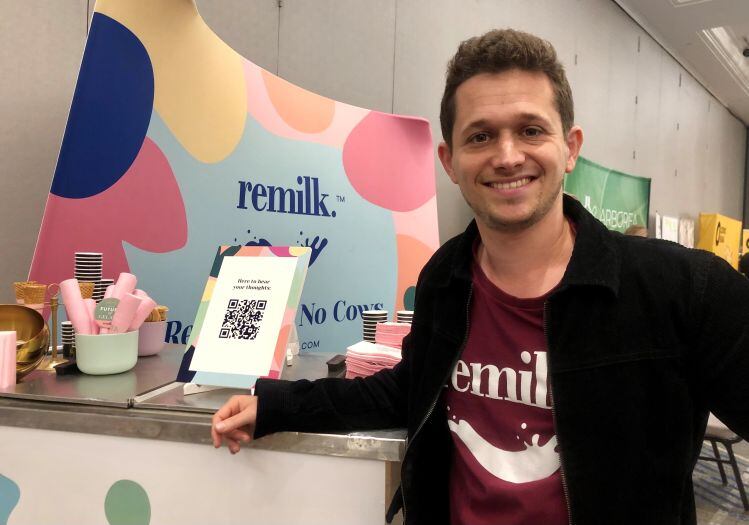The products - which are set to launch within 12 months, pending regulatory approval - will feature Remilk's whey protein (beta-lactoglobulin), made via a genetically engineered strain of yeast via precision fermentation, co-founder and CEO Aviv Wolff told FoodNavigator-USA.
"CBC plans to market these products to mainstream consumers and not a niche consumer segment. Therefore, we expect to see them on dairy shelves as animal-free dairy products alongside traditional products."
He added: "The official approval in Israel is granted by the Israeli Ministry of Health, in a similar process to that conducted by the FDA. We’re in the midst of the approval process."
World's largest precision fermentation facility
However, Remilk also has US ambitions, and has recently obtained self-affirmed GRAS status for its beta-lactoglobulin and submitted its GRAS notification to the FDA.
Buoyed by a $120m series B funding round, the company is now planning what it claims is the world’s largest precision fermentation facility in Kalundborg, Denmark.
The facility will use an (as yet undisclosed) ‘non-agricultural land source’ of sugars as a carbon source to feed its microbes, said Wolff.
“We estimate we will have cost parity production in Denmark, meaning we're going to sell our proteins at the same price that it costs dairy farmers to produce milk proteins, already in 2024. We have seen a tremendous increase in the last few years in our ability to compete with animal farming from a cost perspective. And moving forward, we believe that cost will continue to decrease, so eventually we'll see pricing that is actually cheaper than animal dairy."
Feedstock: A ‘non-agricultural’ source of carbon
The feedstock for the microbes is “proprietary information, but it's not coming from agricultural land. We are talking about an extremely widely available carbon source which is not agricultural and it's very cheap," Wolff said.
He added: “The yeast we’re using was never used to digest this type of carbon source and we've done something unique by engineering the yeast so that it can digest this specific carbon source. We believe this is a huge advantage we have compared to other companies in the space.
"Each microbial system has its pros and cons when producing recombinant dairy proteins, but we are confident that Remilk’s protein is of remarkable purity and quality, and is cost efficient, which we owe in large part to the incredible capabilities of our proprietary yeast."
While Remilk's first dairy protein is beta-lactoglobulin, it is also capable of producing other whey proteins (alpha lactalbumin) and several casein proteins, said Wolff.
“We are working on several different microbial systems. So for each protein we are tailoring a specific system. Sometimes it is yeast, sometimes it's a bacteria or fungus.”

Monetizing side streams
Remilk is also exploring multiple opportunities to monetize the by-product/side streams from the fermentation, he said. He explained, “for production of beta-lactoglobulin, the side stream is yeast, and ours is really the highest quality you can find, nearly 60% protein, and high in fiber.”
As the yeast strain in question secretes the proteins, the downstream harvesting and purification process is “basically using industrial filtering systems because the diameter of the yeast is bigger than the dairy protein," he explained.
"We end up with an extremely pure protein, without the need for additional purification steps. It’s unique in the precision fermentation space.”
Casein via precision fermentation: ‘Getting yeast to produce folding proteins, it's not a trivial thing to do’
Making casein proteins is more complex, he said, noting that when produced by cows, casein proteins fold up into a spherical ‘micelle’ structure so that the proteins remain suspended indefinitely in the liquid.
“Getting yeast to produce folding proteins, it's not a trivial thing to do. There are ways to overcome those challenges. But I believe it's really a matter of six months, 12 months, before we scale up these [casein] proteins as well. You also don’t need to be able to make all of the casein proteins. We can use sometimes even only a single subset of protein, and still get the same functional casein micelle that that can be formulated to make mozzarella.
“We're basically trying to mimic the process [that takes place in a cow to produce micelles]. It's a relatively simple process that involves the formulation of minerals and caseins in specific conditions.”
But, he added, “even with whey protein alone, there is a huge opportunity when it comes to soft cheeses, ice cream, yogurt, and milk.”
The business model at Remilk
Asked about the business model at Remilk, Wolff said: “We founded Remilk with the vision of not building a niche vegan product but transitioning animal farming to precision fermentation and today, we believe the only way to achieve this is by working with existing CPG brands that already control the market.”
What is animal-free dairy?

There is no formal definition of ‘animal-free’ dairy – a term being tested by some startups in the space – but it typically refers to products made with ‘real’ dairy ingredients (whey, casein, dairy fats etc.) that are produced without cows, either via genetically engineered microbes (Perfect Day, Brave Robot, Change Foods, New Culture, Formo, Remilk, Imagindairy, Those Vegan Cowboys etc) or genetically engineered crops such as soybeans or peas (Nobell Foods, Moolec Science).
Using synthetic biology, firms in this space use DNA sequences like pieces of computer code to program or instruct plants or single celled organisms such as fungi and yeast to express animal proteins after feeding on sugars in fermentation tanks.
The final proteins do not contain any modified genetic material and are already familiar to the food industry (in its GRAS determination for its animal-free whey protein, which is expressed by a genetically engineered strain of filamentous fungus, for example, Perfect Day notes that it is "identical to commercially available bovine-produced β-lactoglobulin”).
Making ‘real’ dairy foods without cows, argue animal-free dairy proponents, offers the best of both worlds: more sustainable and ethical products that don’t involve industrialized animal agriculture, but still deliver the nutrition and functionality of dairy.
Animal-free whey proteins (from Berkeley-based Perfect Day, a pioneer in the animal-free dairy space) now feature in several ice cream brands including Brave Robot, Coolhaus and Nick’s; BOLD CULTR and Modern Kitchen animal-free cream cheese; Brave Robot cake mixes; animal-free 'milk' brands such as Bored Cow, Strive Nutrition and Betterland; 'Mooless' vegan protein powders from Natreve, and 'V-whey' proteins from California Performance Company; and chocolate from Mars (pictured right).
Starbucks has also been testing items featuring milk and ice cream products from Perfect Day in a couple of its coffee shops in the Pacific Northwest.
Animal-free casein proteins - which are more challenging to create without cows on a large scale - are still under development, although several startups say they are gearing up to launch cheeses featuring animal-free casein proteins in the next couple of years (there are four different types of casein protein, and it may not be necessary to produce all of them to get the kind of functionality formulators are looking for).

